New and emerging forms of social media are not only changing the way organizations attract supporters, but are also changing the way we look at politics all together. In essence, nearly all Americans have a cellphone or at least access to a computer these days, and the majority of us have evolved to a much, much, much more digital existence. The naked truth is that we’ve gained literally hundreds to thousands of cable TV channels, satellite radio stations, blogs, and Web pages. The media today are more diffuse, yet more chaotic, than ever.
The result of all these advancements is a new archetype in political communications – and what’s cool (ahem, progressive?) is that both parties are using it. The interesting thing here is that very little of it has to do with expensive political advertising on older mass media, such as television or newspapers. Read further, and you’ll see a few of the ways the new media are changing the political scene from the bottom up:
1. News Selection: Dan Pfeiffer, the White House communications director, recently told the New Yorker, “With the Internet, with YouTube, with TiVo, with cable TV, people are selective viewers now. . . . People approach their news consumption the way they approach their iPod: You download the songs you like and listen to them when you want to listen to them.” What this quote suggests is that we’ve entered an era of pick and choose, meaning we don’t have to sit through a song, movie, or book we don’t like anymore. We can now find the parts of media we want, and can ignore the ones we don’t. Variety is expanding. It’s crazy to think about, huh? One thing is for sure: due to iTunes, music/books/movies will never be the same.
2. The power of Sharing: Although it’s still in its infancy, the fact of the matter is that sharing through new media outlets has become a novel way of circulating the news – for instance, tweets from the streets of Iran and from the rubble of Haiti have been retweeted hundreds of times, creating a new, virtual form of word of mouth. As well, other examples include the White House’s Facebook page of nearly half a million fan,and its Twitter feed of about 1.7 million followers. The thing to be noted here is that this is no surprise: President Obama was the first candidate to announce his White House run via Web video and his vice presidential pick by text message. With people like Obama leading the world by utilizing new media, it’s fun to think where all this could go. It’s a brave new digit world, in other words.
3. I “LIKE” It: Liking, the act of clicking on an icon to express your opinion, feelings, or political preference, is rapidly changing the way we define our sense of taste, not to mention our lives. By simply clicking “thumbs up” or “thumbs down,” internet users can give politicians an instant read on opinions and positions posted on their Web pages. This is a sort of a rudimentary straw poll that is faster, cheaper – albeit maybe less accurate – high-priced telephone poll.
4. Gotta Get Yourself Connected: The level and extent to which people are connecting to one another today is unparalleled throughout history up until this point in time. During the height of demonstrations in Iran, for instance, street organizers tweeted locations that were considered safe for impromptu protests – resulting in “flash mobs”- and working this to great effect. Similarly, last-minute organizational details for tea parties, town hall meetings, and even State of the Union-watching events get posted on Facebook pages and tweeted to supporters. All of this is almost revolutionary, and it sure beats passing out fliers at bus stops, as political organizers did back in the day.
5. Donate! Donate! Donate! John McCain first harnessed the Internet for fundraising after his 2000 New Hampshire primary victory; by 2007, Ron Paul raised $4 million online in one day, despite being largely ignored by the media. Barack Obama raised hundreds of millions online over the course of his presidential run, and in just the last two weeks of the senatorial race in Massachusetts, Scott Brown raised $12 million from 157,000 donors, according to online consultants Mindy Finn and Patrick Ruffini, who helped Brown. The trend here is clear: most politicians would rather have thousands of individual givers than a few big corporate donors, and the Internet makes that much easier.
To quote one writer from the The Washington Post, the Internet “has reorganized the way Americans do everything – including the way they elect their leaders. Candidates who would have had no chance before the Internet can now overcome huge odds, with the people they energize serving as the backbone of their campaign,.” In my opinion, it’s actually a very good thing that the new media can deliver a bottom-up boost to candidates facing what are normally quite overwhelming odds. And that far outweighs the supposedly devastating effect of a few big corporate donors buying top-down television ads. What’s interesting is that politicians have always sought to go around the mainstream press filter – from fireside chats, to whistlestop tours, to snail-mail newsletters—but the new forms of media take things a step further by even more precisely connecting them to their constituents. And the technology is developing rapidly. Simply stated, the future of politics regarding new media is unlimited in terms of aptitude. Where we go from here is anyone’s guess, but one thing is for sure: the potential for a more democratic America is infinite, and such an event could be just over the horizon.

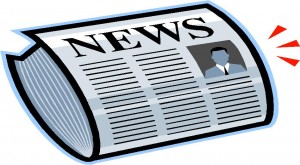
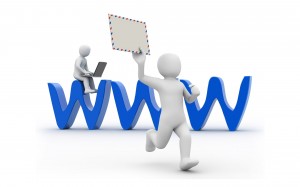
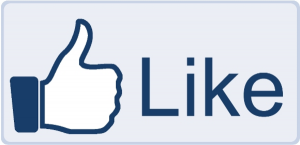
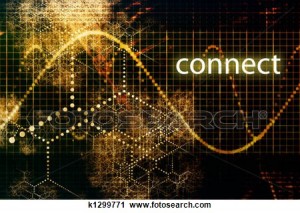
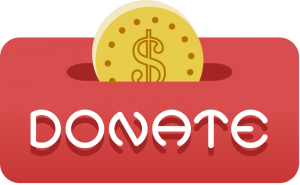
Leave a response